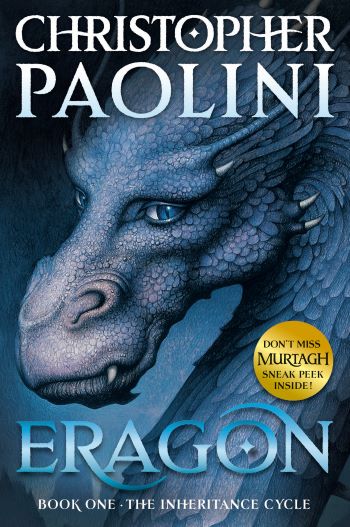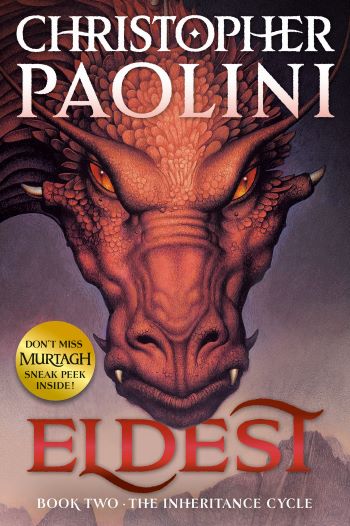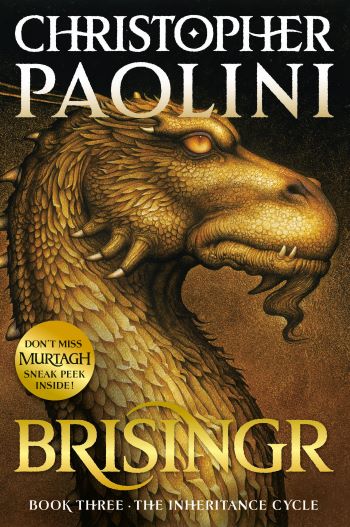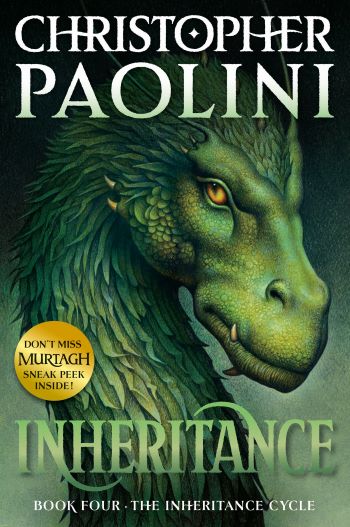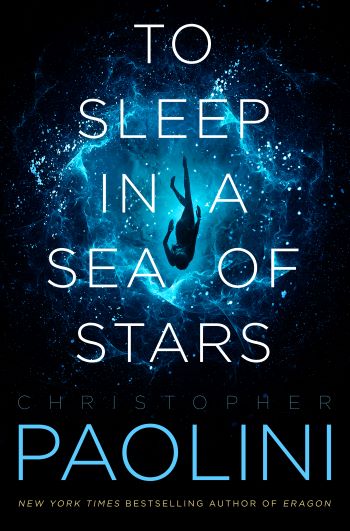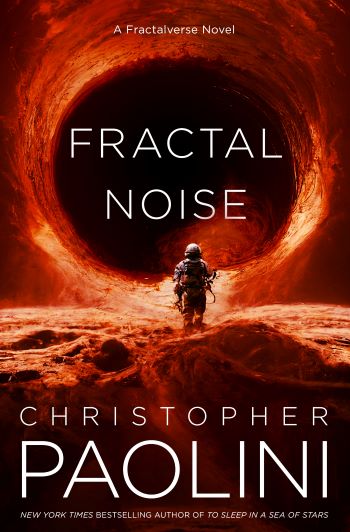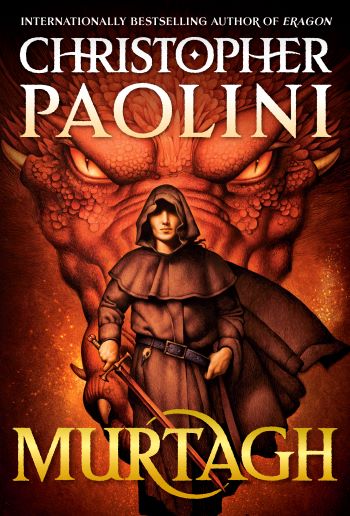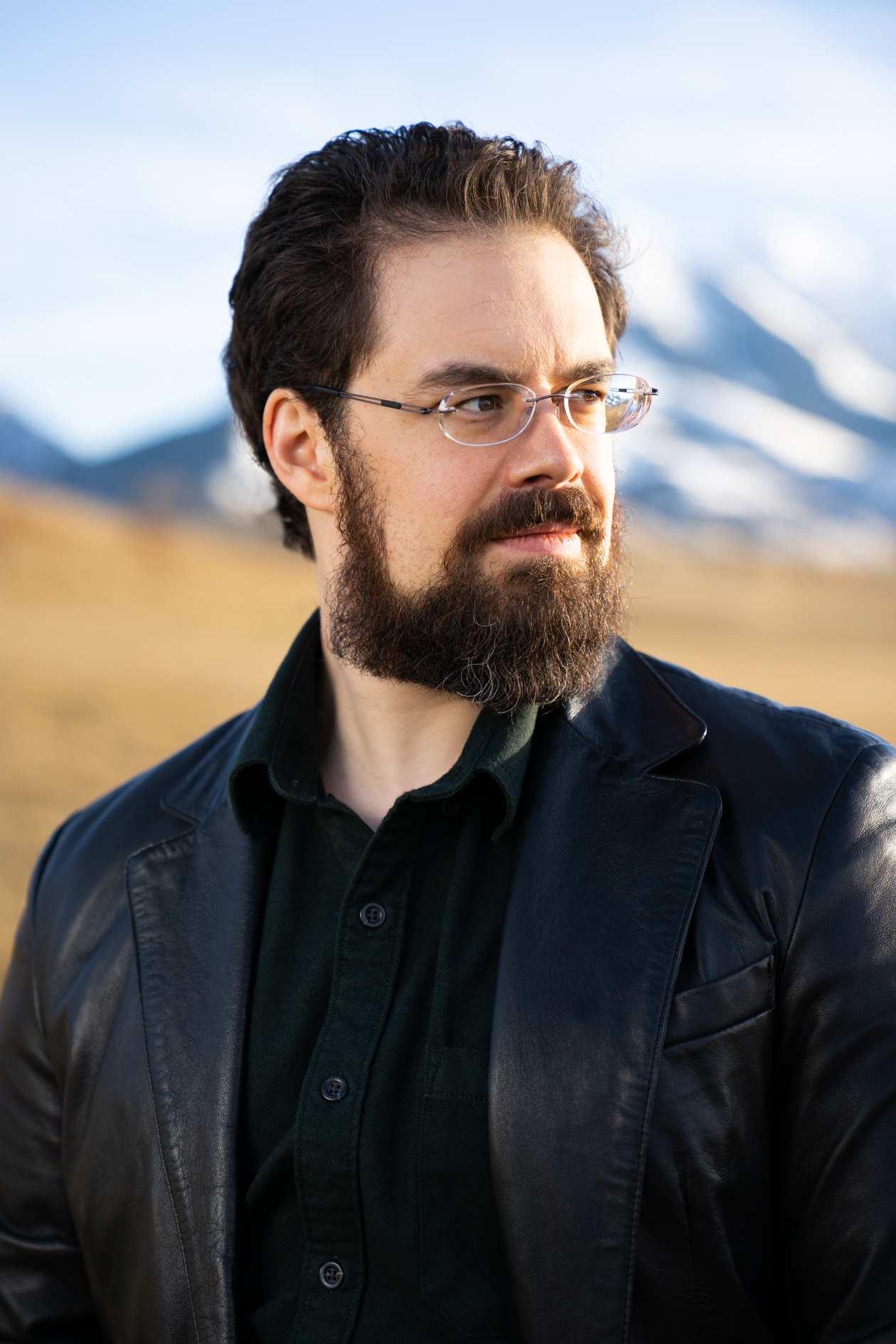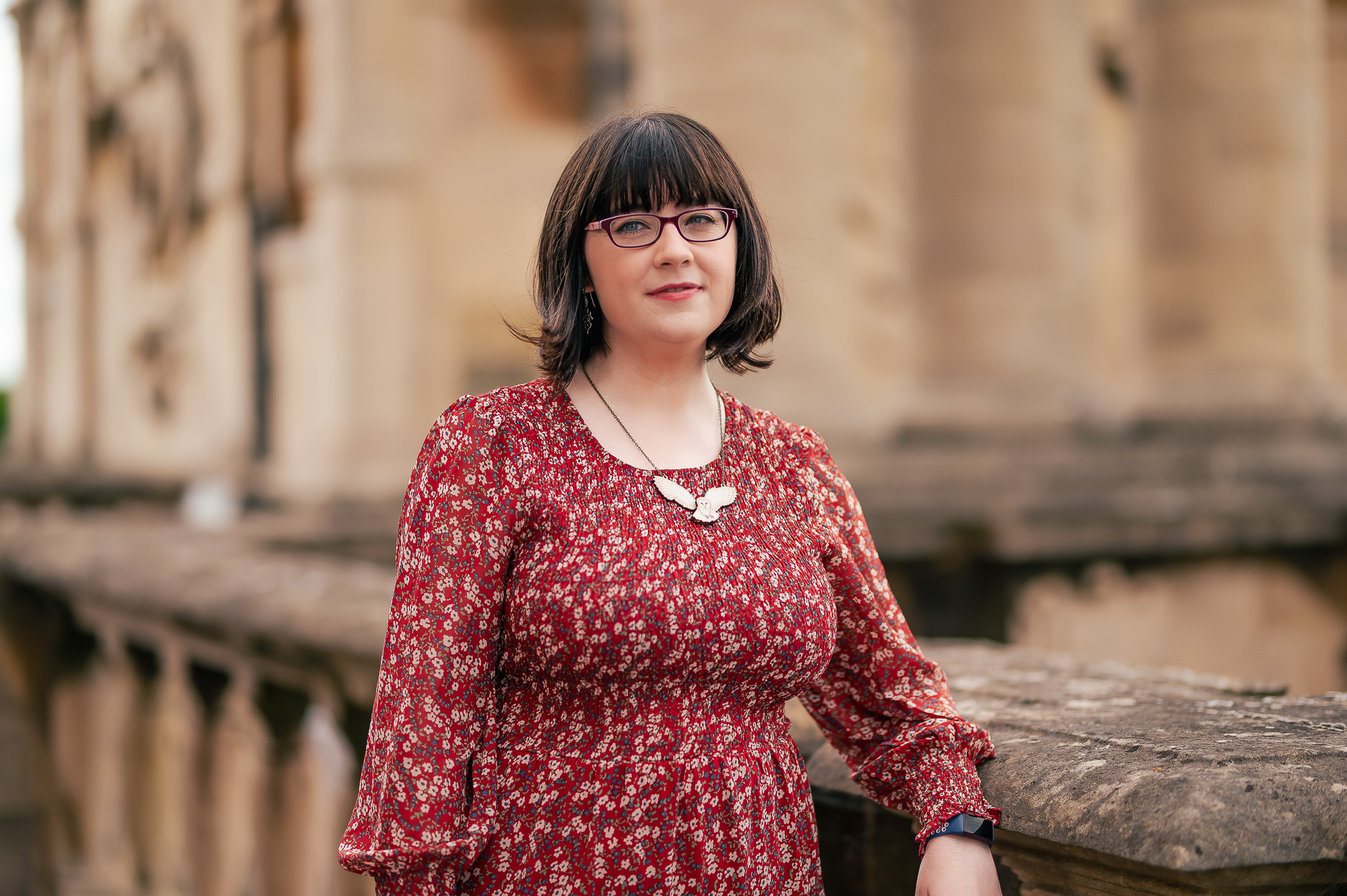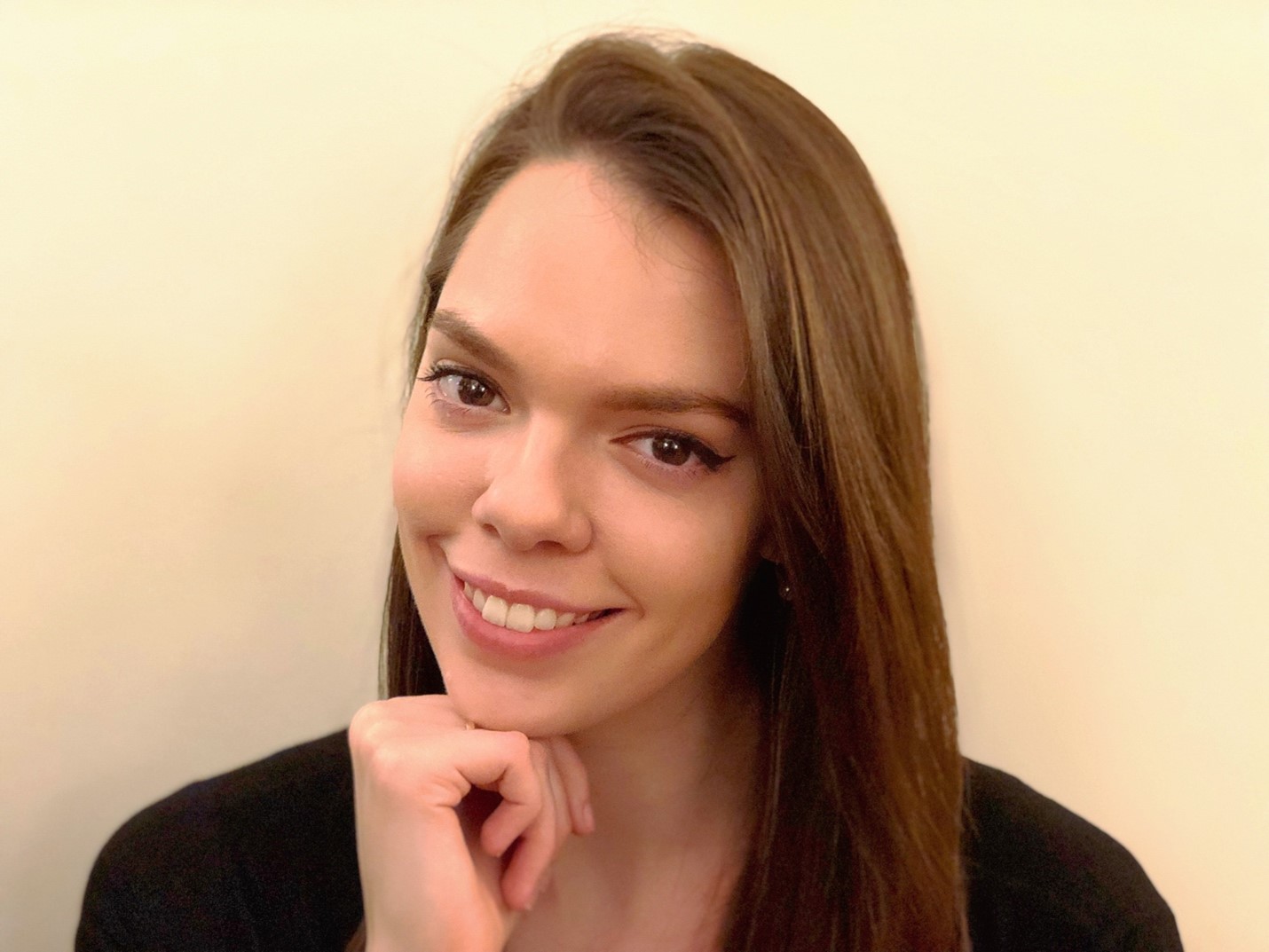Christopher Paolini is the author of the World of Eragon and the Fractalverse. We’re so excited to have Christopher on our blog today to discuss his writing journey. His latest book, Murtagh, set in the world of Alagaësia, hits shelves tomorrow, 11/7!
Can you tell us a little bit about yourself, your books, and your writing journey?
Ha! I could write an entire book just as an answer to those questions. But in brief:
My name is Christopher Paolini. I was homeschooled my entire life, and after graduating from high school at fifteen, I decided to write the sort of book that I would enjoy reading myself. That book was Eragon. After three years of writing and editing, my family and I self-published Eragon. Subsequently, Random House acquired the series, and I spent the next seven years writing the rest of the Inheritance Cycle. In 2020, I released To Sleep in a Sea of Stars, the first book set in my sci-fi universe, the Fractalverse.
Fractal Noise (a prequel to To Sleep) came out on May 16th, 2023, and my newest novel, Murtagh—another full-length entry into the world of Eragon—publishes on November 7th.
Aside from all that, I love drawing and painting (I create much of the interior art for my books), and one of my favorite activities is telling bad puns.
Why is it so hard to talk to a Dragon Rider?
. . .
Because they always have their heads in the clouds.
You recently switched gears from writing fantasy to science-fiction. What prompted this change? Do you have any advice for writers looking to explore other genres but aren’t sure where to start?
I grew up reading as much sci-fi as fantasy, and I love both genres equally. After spending over a decade writing about swords, magic, and dragons, it seemed like fun to switch things up and write about spaceships, aliens, and explosions for a while. Plus, I love thinking about the universe and the future that (I hope) humanity will have out in space.
My biggest piece of advice would be to make sure that you actually read the genre you want to write. I wouldn’t try to write a romance novel—for example—without devouring a giant pile of them. The fundamentals of plot, character, pacing, and worldbuilding remain the same, no matter what you’re writing about, but every genre has its own specific eccentricities, and you’ll be well served to familiarize yourself with them.
Do you have any world-building tips for authors who want to write sci-fi or fantasy? It can be so overwhelming to create a brand-new world!
I do! As soon as you have a general idea of the sort of world/story you want to write, spend some time and figure out how you’re breaking the laws of physics. Assuming you are. Before I do any other worldbuilding, I need to know what is or isn’t possible in a particular setting. Whether I’m using magic or technology to facilitate the action, it’s crucial to think about how it would be employed. Once that’s in place, the rest of the worldbuilding is a fairly straightforward process of asking—and answering!—questions. Who? What? Why? When? And always, how.
We’re so excited for your new book, Murtagh, from the world of Eragon. Did you always plan on expanding the world of Alagaësia after finishing the Inheritance Cycle, or is that a more recent development?
Always planned it! Which is why there are certain hints and events in the Inheritance Cycle that I placed there specifically to provide the basis for future stories. From here on out, I plan on ping-ponging between the Fractalverse and the World of Eragon with every book. And yes, I have some BIG plans for Alagaësia.
When you start to write a new book, do you begin with plot, characters, or setting? Why?
Usually I have an image. Sometimes it’s static, sometimes it’s an actual scene. In either case, there’s always a strong emotional component to the image … and it’s that emotion that I want to convey to readers. Everything I do after that, all of the worldbuilding, plotting, characterization, writing, and editing—all of it—is done with the goal of evoking the desired reaction from readers. (The image usually gives me an idea of setting right from the very beginning.)
In the case of the Inheritance Cycle, the image was that of a young man finding a dragon egg (and later having the dragon as a friend).
In the case of To Sleep, it was the final paragraph in the book
In the case of Fractal Noise, it was the idea of a bare, rocky planet turning in the endless depths of space, and on that planet, a giant, perfectly circular hole that emitted a blast of noise every few seconds. . . .
You’ve tried many things in the name of understanding what your characters do, such as forging knives. Do you think emulating your characters’ actions is a necessary part of the writing process? How do you think these activities have improved your own writing? (if this truly does help, then I’ll need to figure out how to forge a sword of my own)
It’s definitely not necessary, but it can be helpful. Having personal experience with a particular activity is always a plus. Failing that, books, articles, and YouTube can be a decent substitute. Given that I write about spaceships and dragons, there are somethings that I’ll never be able to encounter in real life . . . but, hey, that’s what our imaginations are for!
Can you provide links to any websites or social channels you’d like readers to follow?
· Twitter @Paolini
· Facebook @PaoliniOfficial
· Instagram @Chrisotpher_Paolini
· YouTube @Christopher_Paolini
· TikTok @Christopher_Paolini
· Main Website: Paolini.net
· Fractalverse Website: Fractalverse.net
Author photo credit: Lo Hunter
For more author interviews with writing and publishing advice, click here.
To sign up for Ready Chapter 1’s Peer Critique Forum to get fast, actionable feedback on your writing, click here.
